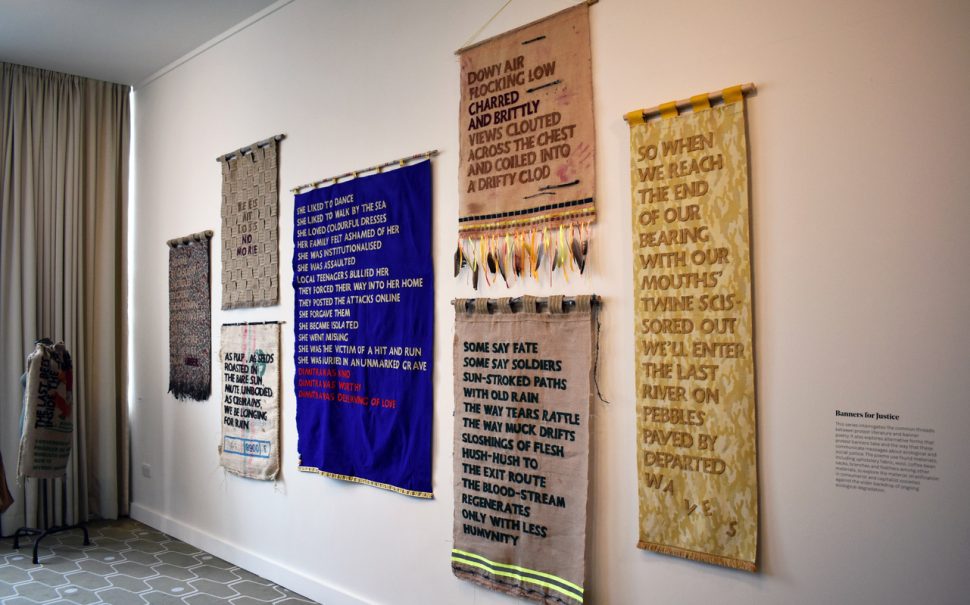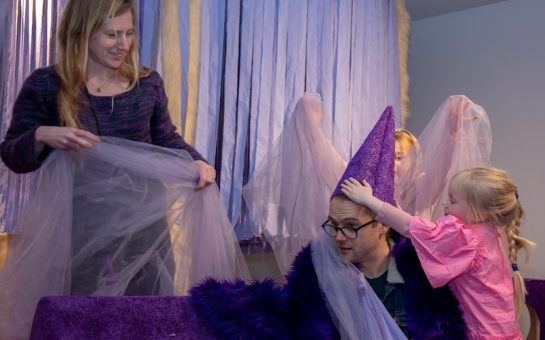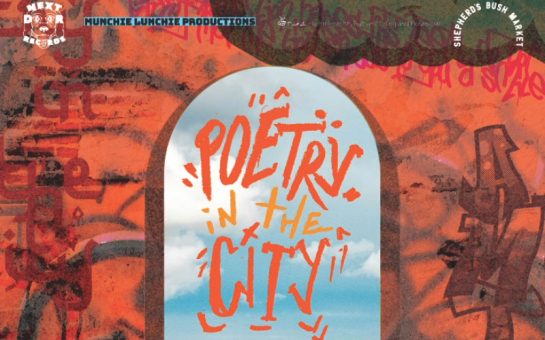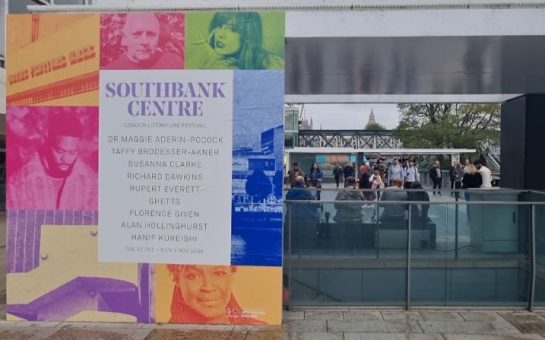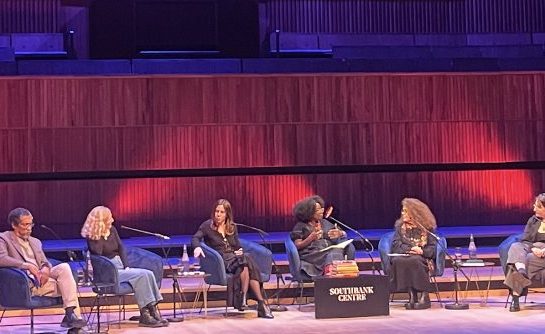An interactive poetry exhibition at the National Poetry Library blurs verses with visual art and materials to inspire a bold exploration of creativity outside the page.
Astra Papachristodoulou’s exhibition, Making Poetry, explores poetry off the page as sculptures, objects and textiles.
The exhibition at the Southbank Centre-based library presents her work on a wide range of materials including beeswax letter transferring, protest banners, eco-friendly materials and poetry games.
Papachristodoulou said: “The majority of the works in the exhibition were born during the pandemic, at a time where there was a lot of uncertainty and chaos, and there was a lack of communication and touch.
“A lot of these poems were born out of a need to connect with things around me, because of this lack of touch.
“It was through that work that I satisfied that longing for tactility.”
The exhibition embodies the fragility of intimacy, as poetry crafted on textiles and egg shells, emerges through a deeply personal yet universal experience of longing for human touch and connection.
Poetry beyond the page
Papachristodoulou’s art explores global themes of climate change and colonialism as well.
She said: “I just feel it’s the best way for me to express my thoughts around really complex issues.
“If someone asks me directly about the usual things that I write about, I don’t think that my answers will be quite as adequate as my work is.
“I feel creatively, I can express myself a lot more eloquently than I can in usual speech.”
Papachristodoulou’s blend of poetry and tactility re-introduces her audience to materials they are already familiar with, breaking the barrier between the audience, reader, object and poem.
One interactive element of the exhibition includes poetry written on Jenga bricks as opposed to an inscribed poet.
She wishes her audience to consider poetry as an art form, rather than a book.
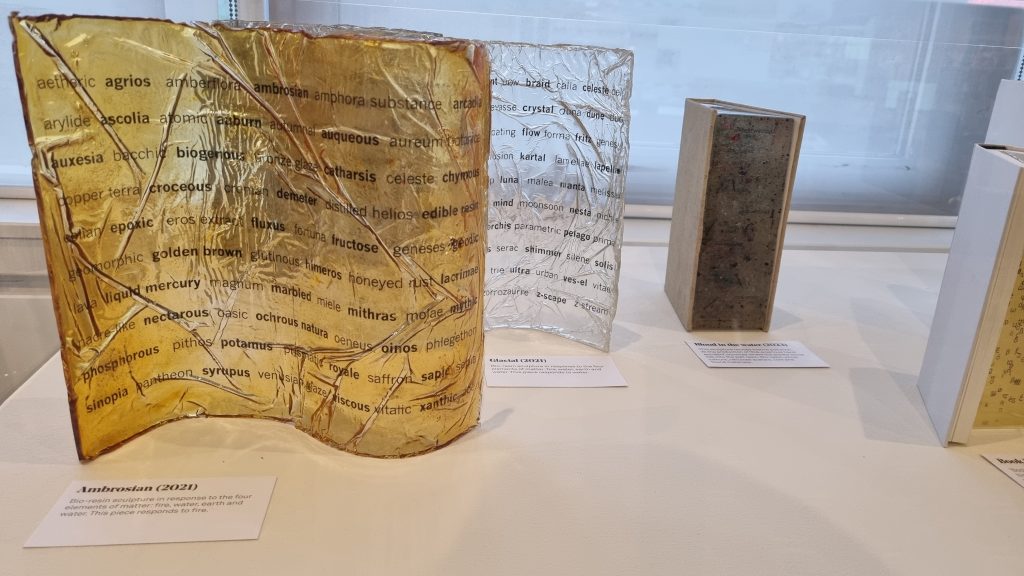
The multisensory approach creates a warm, approachable and inviting atmosphere which challenges the alienation traditional forms of art and poetry writing may create.
Creative process and inspiration
Papachristodoulou reflected on her creative process as an experimentation with material and pushing boundaries with three dimensionality.
She said: “It’s a very fluid process for me.
“I don’t plan ahead of what I’m going to create.
“I go with the flow, see what materials I have around me, see what stimuli, what concerns me at the present moment and try to make use of the material around me to express this particular thing that occupies my mind at the time.”
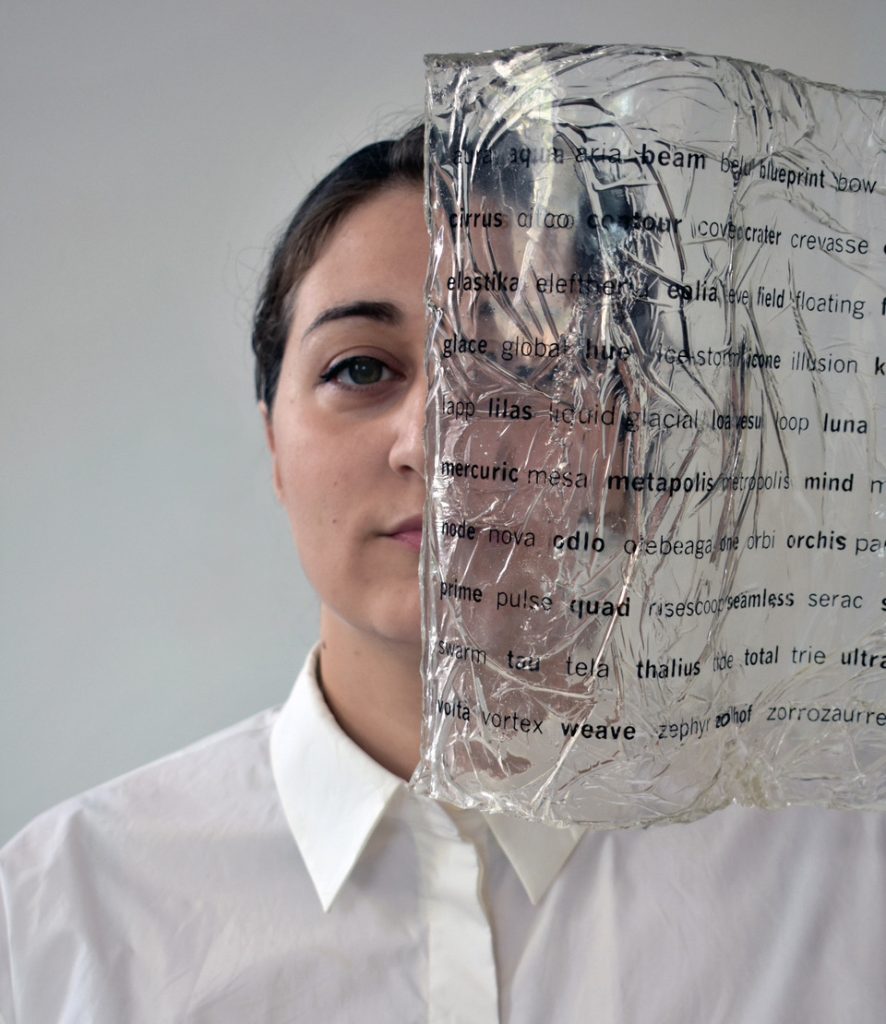
Egg poems: A tribute to Greek visual poetry
Papachristodoulou’s connection to Greece passes through her work seamlessly.
She reflects on her childhood in the countryside, surrounded by nature and the tradition of her homeland, which continue to silently inspire her creative process.
Papachristodoulou said: “Growing up near a bee factory and among beekeepers, honey and beeswax were such a significant part of our lives.
“I think a lot of my work is actually about bees themselves.”
Beeswax and bees inform her material choice, often re-appearing as a key theme in her work.
For her this material is symbolic of the generosity of nature and the fragility of ecosystems.
Papachristodoulou said: “It points to the generosity of these beautiful animals, bees, that offer this gift to us.”
The exhibition aims to highlight Greek luminaries who have been overlooked, honouring her childhood.
The most intimate part of the exhibition is her egg poem, made of real eggshell and coated in beeswax.
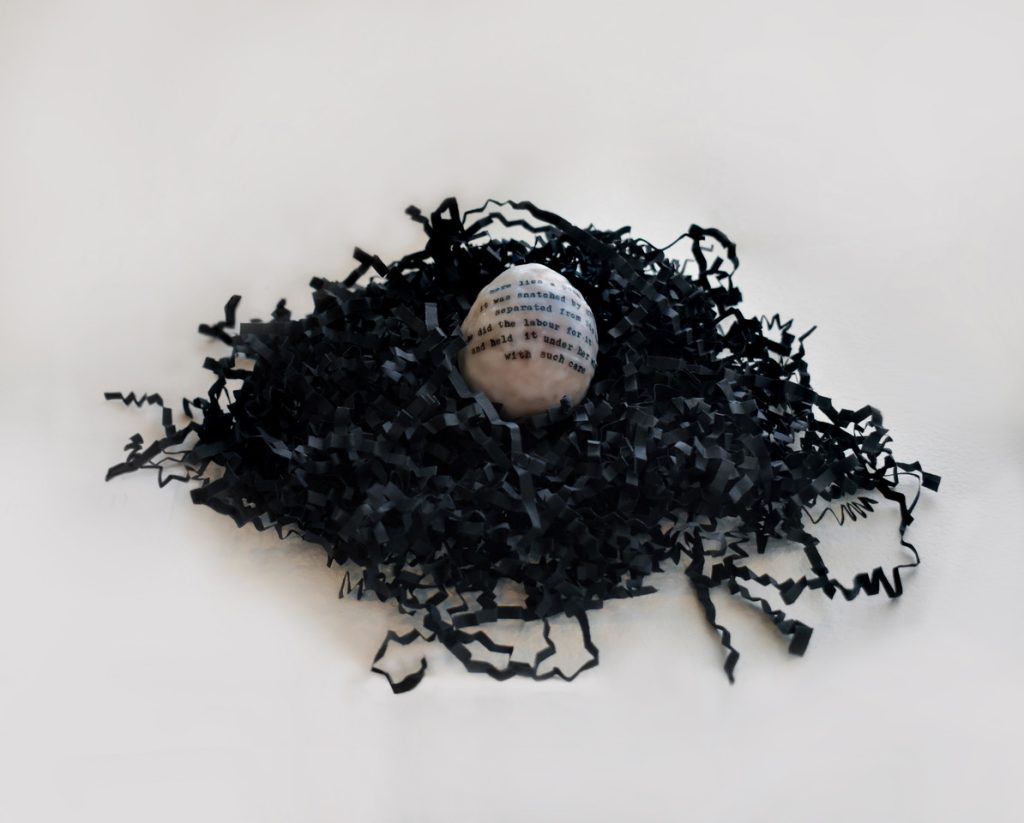
The poem tells the story of a baby being snatched from its mother’s wings.
Papachristodoulou calls this a response to the first ever visual poet she encountered who came from the same Greek island, Rhodes, as her.
The Greek artist Papachristodoulou admires produced concrete poems, one of which was in egg-shaped form.
Future exhibitions: Visually impaired audiences
A particularly exciting project she envisions is an exhibition designed for visually impaired audiences.
For those aspiring to explore experimental poetry, Papachristodoulou offers the simple advice to let go of the fear of judgment.
She said: “I think one of the beautiful elements of experimental poetry is that things can work out, sometimes things don’t have to always work out.
“But I think it’s important to push your own boundaries without the fear of the outcome.”
The exhibition is open to the public for free until 5 January, 2025 at the National Poetry Library.
Picture credit: Astra Papachristodoulou
